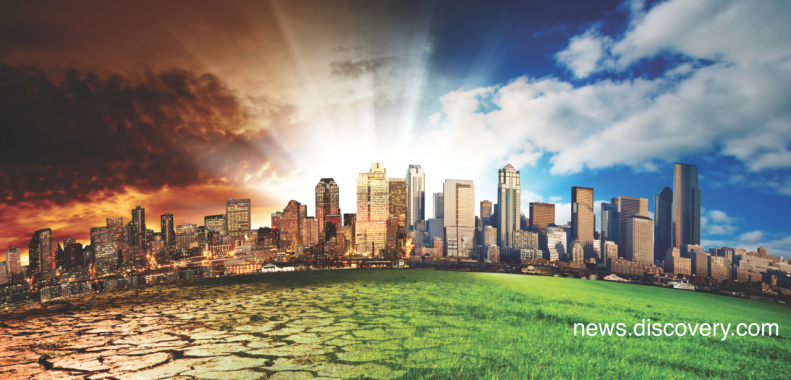There are simple measures that you can take in reducing your carbon footprint and avoid contributing to the greenhouse gases that cause global warming.
- Walking or riding a bicycle instead of driving a car.
- If you require a car to get somewhere where a bicycle or walking is simply not feasible, consider the options of electrical powered or hybrid cars. Or car pool.
- Take part in tree planting! Trees help recycle carbon dioxide (a green house gas) and produce oxygen through photosynthesis.
Lets be honest, we can do more than that.
A significant challenge of combating climate change is the apathetic attitudes of many individuals, borne of the belief that their individual actions are insignificant when placed against the immense task at hand. Consequently, with the belief that their actions are trivial, many adopt the apathetic attitude. I must say that I have been there and I have done that. I used to dismiss climate change because I thought that as a nobody, I could not bring about a change. It is this apathetic attitude that is hampering the progress in reversing climate change.
We need individuals to believe that no action is insignificant, especially when the smallest of effort is necessary to tackle the issue of climate change. Individuals have to be educated and equipped with the knowledge and skills to mitigate and ideally, reverse the effects of climate change. From the smallest actions such as informing another of the intricacies of climate change (our blog is here to help you with it!) to being advocates on a global scale. No action is too minimal to be dismissed. After all, all of us are responsible for climate change in more ways that we believe we are.
Here is an encouraging example of many efforts put together to achieve a enormous outcome. Efforts to manage climate change began in 1987 with the ‘Montreal Protocol on Substances that Deplete the Ozone Layer’, an international treaty signed by countries to pledge their reduction in production and consumption of ozone depleting substances, and protecting the ozone layer. The ozone layer is critical in absorbing most of the sun’s harmful ultraviolet rays, preventing the Earth’s surface from reaching damagingly high temperatures. Previously, the abundance of these ozone depleting substances had damaged the ozone layer and posed catastrophic threats on the survival of countless organisms on Earth. Thankfully, since the implementation of the Montreal Protocol, a reduction of 98% in these substances have been observed and the ozone layer is projected to heal in the next 40-50 years. This is evidence that if the human species rallied together, we can produce a desired change!
The takeaway message of that hopefully inspirational example is that you should not disregard the power that you wield, the moment you are equipped with the knowledge to educate others.
Here are some steps that can help you get there.
- Get rid of that apathetic attitude!
- Equip yourself with information related to climate change and ways that one can participate in combating climate change.
- Get out, spread the word, educate the wider public. This does not necessitate standing atop a podium and giving a speech in front of national television. Small acts such as educating your neighbour, or friend, or the random guy on the street work just as well. Imagine the snow ball effect when you manage to convince one, and that one convinces another, and the list goes on. Think about the resulting exponential increase in the population of climate change advocates!
3 simple steps, and we are going to help you with step 2. With a global crisis such as climate change, we need every effort to combat it.
Resources to educate yourself on climate change and subsequently to aid in your education of others:
- A Student’s Guide to Global Climate Change
http://www.epa.gov/climate/climatechange/students/index.html
- Combating Global Warming: Simple Action Steps
http://www.bitrebels.com/lifestyle/combating-global-warming-simple-action-steps/
- ABCs of Climate Change
http://www.justearth.net/abcs-climate-change
More information on the Montreal Protocol:
http://ozone.unep.org/Publications/MP_Handbook/MP-Handbook-2012.pdf
References
- Environmental Protection Agency. Ozone Science: The Facts Behind the Phaseout. U.S. Environmental Protection Agency. 2010 [cited 31 March 2015]. Available from: < http://www.epa.gov/ozone/science/sc_fact.html>.
- Ozone Secretariat. The Montreal Protocol on Substances that Deplete the Ozone Layer. United Nations Environment Program. 2011 [cited 31 March 2015]. Available from: http://ozone.unep.org/new_site/en/montreal_protocol.php.
- Empowerment Through Education [Image]. [Internet] [cited 31 March 2015]. Available from: http://www.e-t-e.org.
- Adams, D. Combating Global Warming: Simple Actions Steps [Internet]. 2012 [cited 31 March 2015]. Available from: < http://www.bitrebels.com/lifestyle/combating-global-warming-simple-action-steps/>.
- S. Environmental Protection Agency. A student’s guide to global climate change [Internet]. [cited 31 March 2015]. Available from: < http://www.epa.gov/climate/climatechange/students/index.html>.
- Just Earth. ABCs of Climate Change [Internet]. [cited 31 March 2015]. Available from: < http://www.justearth.net/abcs-climate-change>.
- Berkun, S. How to convince anyone of anything [Internet]. 2010 [cited 31 March 2015]. Available from: < http://scottberkun.com/2010/how-to-convince-anyone-of-anything/>.
- Health Enhancement for Lifelong Professional Students. The Convincing Case: How to build your persuasive case [Internet]. 2009 [cited 31 March 2015]. Available from: < http://hsc.usf.edu/NR/rdonlyres/8D2612DA-3834-4383-839D-0035067787EE/31706/HELPSNewsletterJanuary2009.pdf>.
- Learning Fundamentals [Image]. [Internet] [cited 31 March 2015]. Available from: < http://learningfundamentals.com.au>.



